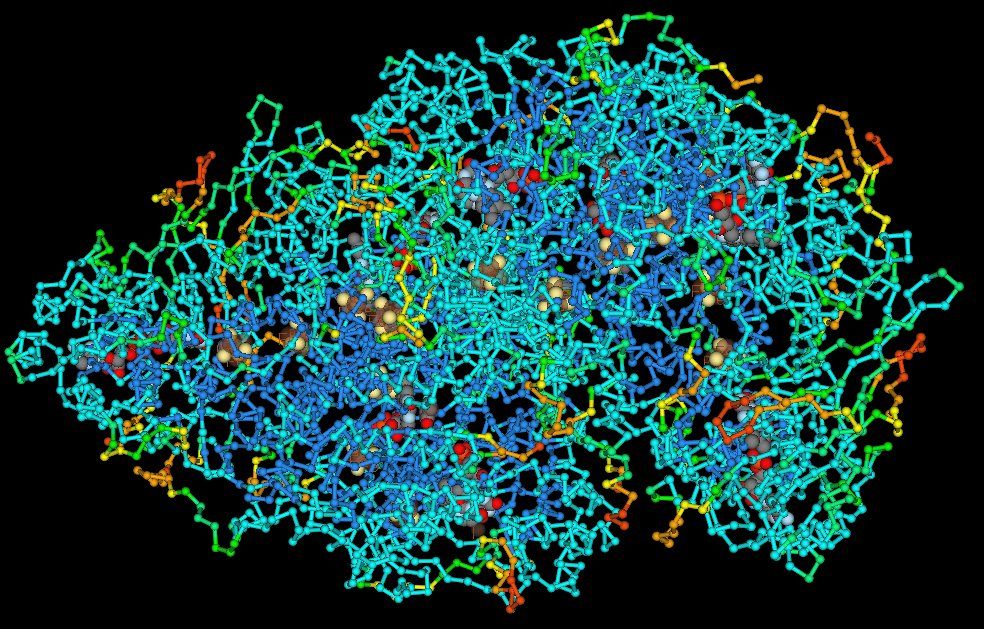Recycling Polymers: Advertising a Round Economic Situation
Recycling Polymers: Advertising a Round Economic Situation
Blog Article
From Manufacturing to Medication: Exactly How Polymers Revolutionize Numerous Markets With Their Benefits
Polymers, with their varied chemical structures and customizable buildings, have emerged as critical parts across a spectrum of sectors. From enhancing manufacturing procedures to enabling innovative advancements in medication, the impact of polymers reverberates far and wide.
Convenience in Manufacturing
With their diverse buildings and adaptability, polymers have substantially boosted the manufacturing processes across various markets. The adaptability of polymers in production is credited to their ability to be molded right into intricate forms, their light-weight nature, resilience, and resistance to corrosion. These residential properties make polymers an excellent choice for a vast array of applications, from vehicle and aerospace markets to medical care and electronics.
In the automobile sector, polymers are thoroughly used in manufacturing parts such as bumpers, control panels, and interior trims due to their light-weight nature, which assists improve fuel performance. Furthermore, their sturdiness and resistance to corrosion make them ideal for outside applications in construction and infrastructure tasks. In the health care industry, polymers play an essential function in creating medical devices, equipment, and product packaging materials as a result of their biocompatibility and sanitation capabilities.

Boosted Product Efficiency
Considerable advancements in item performance have actually been accomplished via the integration of polymers in numerous markets. Polymers contribute greatly to improving product performance due to their special buildings and convenience. In the automotive industry, making use of polymers in making parts such as bumpers and interior parts has brought about lighter cars, boosted fuel effectiveness, and raised toughness. The aerospace sector take advantage of polymers in the production of light-weight yet solid materials for aircraft, leading to enhanced performance and minimized upkeep costs - Polymers.
Additionally, in the electronic devices industry, polymers play a critical role in enhancing the efficiency of devices through their protecting residential properties, influence resistance, and versatility. This permits for the advancement of smaller sized, much more reliable electronic items that are also much more sturdy. In the medical area, polymers are used to create sophisticated implants and medication shipment systems that supply boosted biocompatibility and targeted therapy, ultimately enhancing person results.
Advancements in Clinical Devices
The application of polymers in the medical field has actually led to groundbreaking advancements in the advancement of sophisticated medical devices. Polymers have actually changed the style and capability of continue reading this clinical gadgets by supplying unique residential or commercial properties such as biocompatibility, flexibility, and resilience. One notable technology is using polymer-based materials in the manufacturing of implantable tools like man-made joints, stents, and catheters. These gadgets are now much more compatible with the human body, reducing the threat of denial or negative responses.
Polymer site here compounds have also enabled the production of lighter and more comfy prosthetics, enhancing the lifestyle for amputees. Moreover, polymers with antimicrobial homes are being integrated into clinical tools to avoid infections and boost patient end results. The advancement of advanced drug distribution systems making use of polymer-based products has reinvented the therapy of various conditions by guaranteeing targeted and controlled launch of drugs.
Medicine Delivery Advancements
In the realm of pharmaceutical improvements, unique medicine distribution systems are improving the landscape of clinical therapy. These advancements aim to enhance the efficacy and precision of medicine management while lessening negative effects and improving person conformity. One of the essential advancements in medication delivery is the usage of polymer-based carriers. Polymers offer a versatile platform for designing distribution systems that can regulate medicine launch rates, target particular tissues or cells, and protect the drug from degradation in the body.
Nanotechnology has also played a critical duty in drug delivery improvements by making it possible for the development of nano-sized medicine service providers. These nanocarriers can improve medicine solubility, lengthen circulation time in the body, and enhance cellular uptake, ultimately leading to improved therapeutic outcomes. In addition, innovations in personalized medication have actually caused the personalization of medication shipment systems based on individual patient features, such as hereditary makeup or disease account.

Sustainable Solutions
Having actually laid the structure for improvements in medication delivery systems, the emphasis now shifts his response in the direction of discovering sustainable solutions within the world of polymer-based service providers. Sustainability has actually become a critical facet of contemporary industries, consisting of healthcare, driving the demand for green choices. Polymers provide a promising method for attending to sustainability challenges as a result of their adaptability, biodegradability, and recyclability.
One key facet where polymers add to sustainability is in decreasing the environmental impact of medical waste. Eco-friendly polymers can be developed to damage down naturally with time, minimizing the buildup of non-degradable products in landfills. In addition, the recyclability of specific polymers enables the growth of closed-loop systems that promote the reuse of resources, additionally reducing waste production.
In addition, using sustainable resources for polymer manufacturing, such as plant-based resources like corn or sugarcane, presents a chance to reduce dependence on nonrenewable fuel sources and lower carbon emissions. By utilizing the possibility of polymers as sustainable services, sectors can move towards even more eco-friendly methods without endangering efficiency or performance.
Verdict
Finally, polymers have actually considerably transformed various industries, including manufacturing and medicine, as a result of their convenience, boosted item efficiency, and ingenious applications in clinical gadgets and medication delivery systems - Polymers. These developments have resulted in the development of sustainable remedies that profit both markets and the atmosphere. Polymers remain to play a critical duty in driving innovation and progression across various sectors, showcasing their importance in modern society
Report this page